Therapy Resources and Tools for Healing and Growth
Deepen your self-understanding, strengthen your relationships, and practice new skills for healing and growth:
Whether you’re navigating anxiety, learning healthier communication, exploring your inner child, or working through people-pleasing patterns, these resources offer guidance and structure outside of therapy sessions. Each one is built to give you practical strategies, gentle reflection, and space to move at your own pace.

Workbooks
Our workbooks provide a step-by-step framework for exploring themes like CBT skills, self-compassion, IFS, and relationship dynamics. Each workbook is designed to guide you through reflection, education, and exercises in a way that feels supportive and structured. They’re especially helpful if you want a deeper dive into a topic, with room to journal, practice, and return to the material over time.
Worksheets
Our worksheets are simple, focused tools that help you practice skills and concepts in a clear, approachable way. They can be used on their own for quick support or as a supplement to therapy, giving you space to reflect, track patterns, and apply strategies to real-life situations. Whether it’s identifying triggers, setting boundaries, or practicing mindful communication, worksheets provide bite-sized, practical support.
Courses
Our courses (coming soon) offer a more in-depth learning experience, combining education, practice, and reflection in a guided format. These programs are structured to help you build new skills over time, with opportunities to engage more deeply in topics like managing anxiety, improving communication, or nurturing your inner child. Think of them as a bridge between therapy and self-study, giving you tools, insights, and practices you can return to again and again.
All tools

This worksheet is for couples who have different processing speeds during emotional conversations, want to feel heard, seen, and emotionally safe and who struggle with a cycle of withdrawal (slower processing partner) and anxious pursuit (faster processing partner).
Does disappointing people feel like the end of the world to you? This worksheet is for you. It will help you understand your underlying core beliefs and systematically challenge them.
In relationships, how we talk to each other matters. Dr. John Gottman identified four common communication patterns that can damage relationships—he called them the Four Horsemen of the Apocalypse. But the good news? Each one has a healthy antidote. This sheet describes the four horsemen and their antidotes.
Self-regulation is your ability to manage your emotions, thoughts, and behaviors in ways that help you feel balanced, grounded, and in control. When we’re dysregulated, we might feel flooded, numb, reactive, or shut down. These tools can help you return to a state of calm connection—especially when you're overwhelmed, anxious, or emotionally activated.
This exercise is designed to help couples handle everyday stress that comes from outside the relationship—things like work pressure, upcoming deadlines, or major life events. You’ll each take turns talking about a recent or upcoming stressor in your own life, such as a job interview, a tough meeting, or another personal challenge not related to your partner.
This worksheet is designed to help you meet, flesh out and better understand your inner critic. This will in turn support you in recognizing its fears, worries, needs and help you connect with it from your Self energy.
Do you struggle to affirm your partner? This worksheet will guide you towards finding your own voice as you learn to reassure and connect with your partner through affirmation.
This worksheet is for those who are interested in exploring their wounded inner child and exiles. It is recommended that it be utilized in conjunction with other IFS-themed worksheets that explore the inner system, protector parts, the inner critic etc.
Do you struggle to name emotions and connect with your body? This worksheet will help you “look inward” and listen to your body’s cues.
This worksheet is for the anxiously attached partner who struggles with their securely or avoidantly attached partner’s need for independence. You’ll learn to be curious about their needs and how to sit through discomfort without spiraling.
Trying to do regular check-ins with your partner but not sure how to approach them? This guide will support you in structuring your dialogue to build mutual understanding and foster a culture of growth through shared reflection.
This worksheet will help you prepare for anxiety-provoking social interactions or gatherings. You’ll reflect on parts of you that may be activated, consider their needs and how best to support them.
This worksheet will support you in practicing how to successfully initiate conversations with your partner. Use this sheet on a regular basis with your partner to hone or touch up your communication skills
This worksheet will support you in developing and maintaining a daily practice to check-in on parts of your inner system. It will guide you towards recognizing your body’s cues and the messages it is sending you about your fears, needs and desires.
This worksheet will help with fleshing out parts that are coming up in therapy. It will guide in naming the part, recognizing the signs it is activated, connecting with its needs and working towards unblending with it.
Somatic resourcing refers to building and strengthening internal experiences of safety, grounding, and calm by tuning into the body. This worksheet will support you in learning to recognize your body’s cues and will offer tangible skills to regulate and ground your self.
This set of worksheets will provide basic psycho-education on the differences between functional and dysfunctional worry. You’ll also learn tools and access 3 worksheets to practice functional worrying:
Worry Time
The Worry Tree
The Worry Cloud
This worksheet is designed to help couples practice and use co-regulation exercises during conflict. It includes a range of strategies that vary in duration and intensity, along with guidance for practice during calm moments and application in real-time conflict.



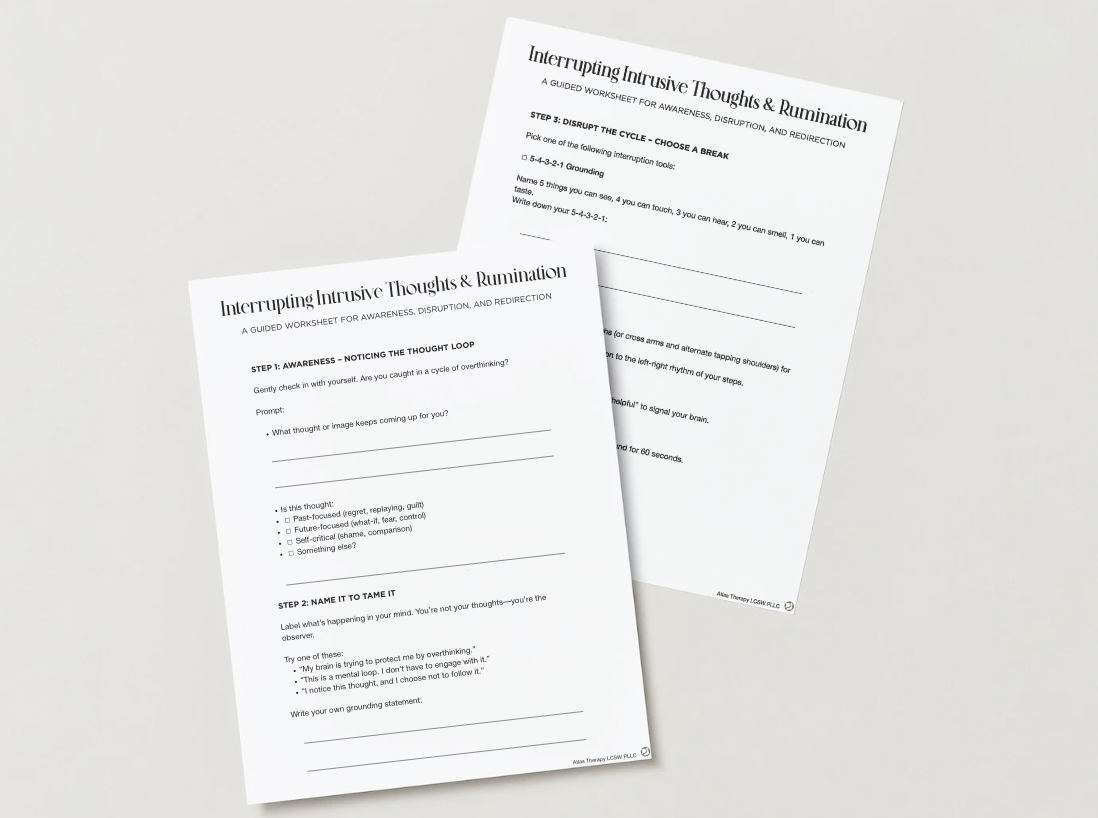
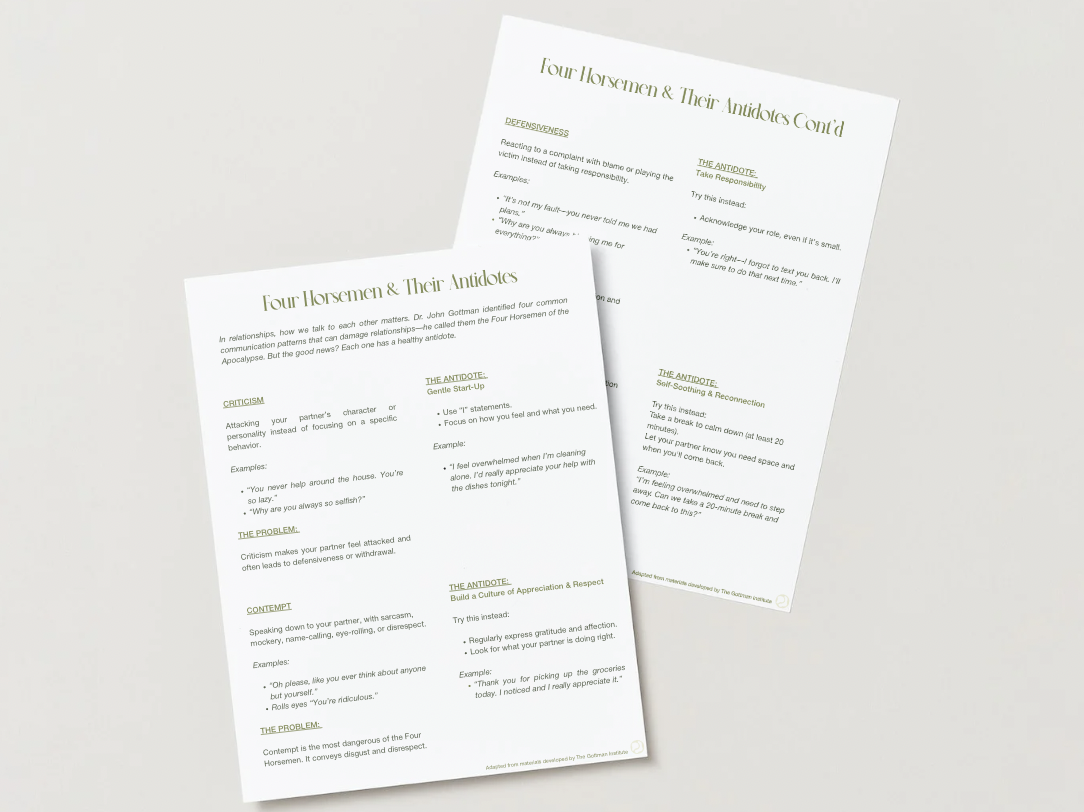
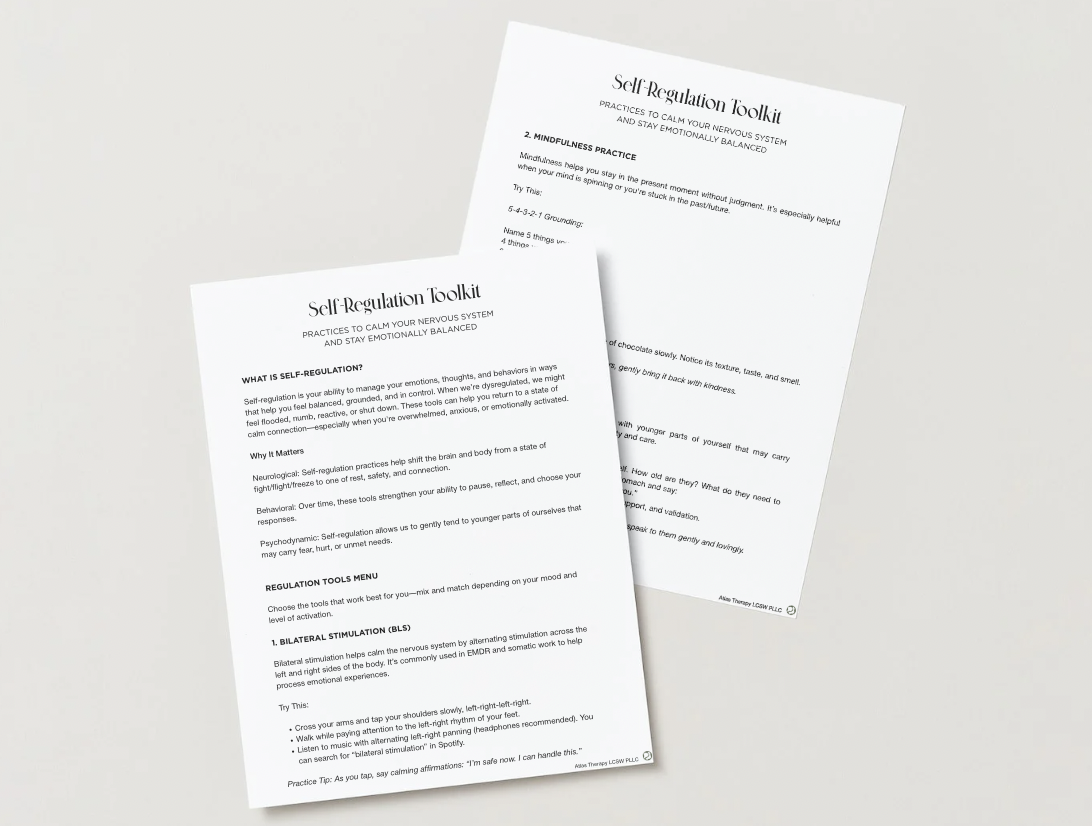

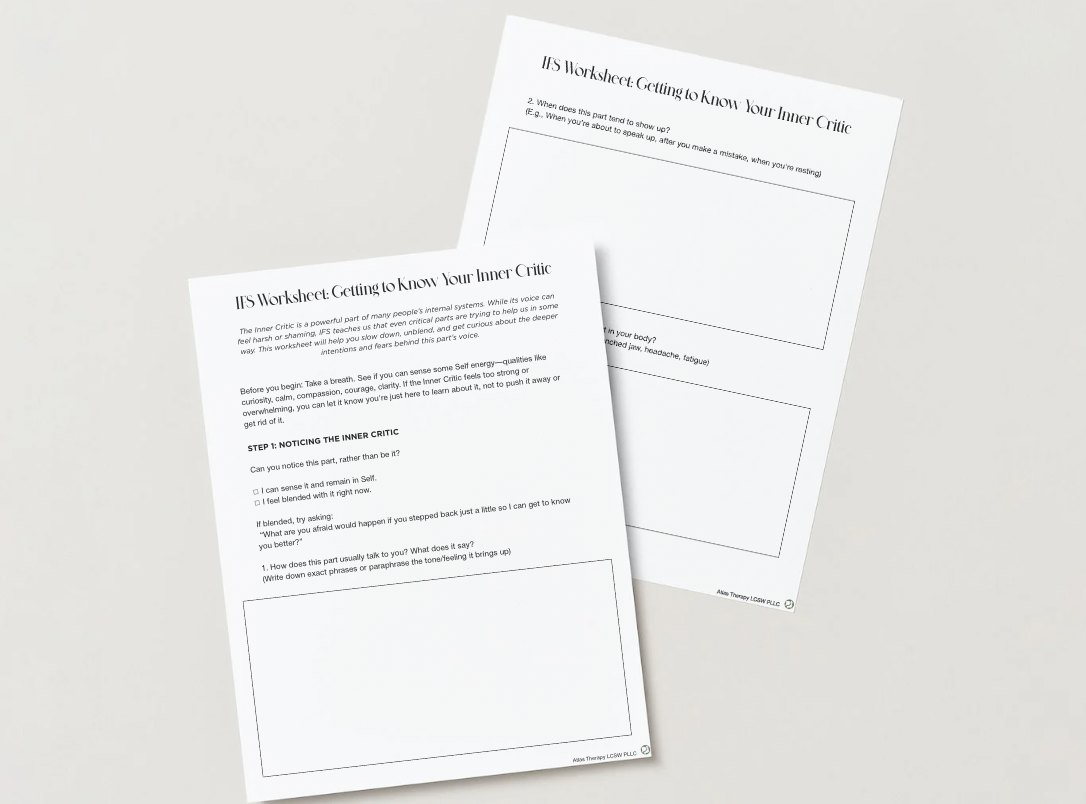
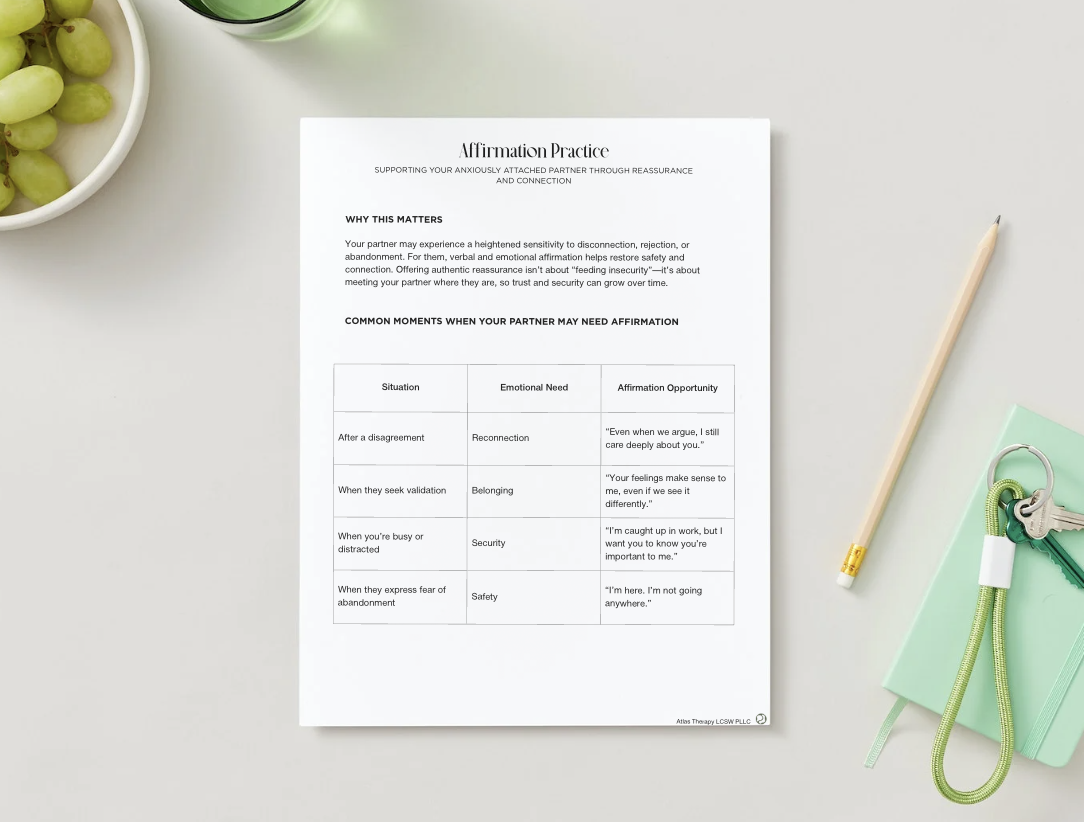
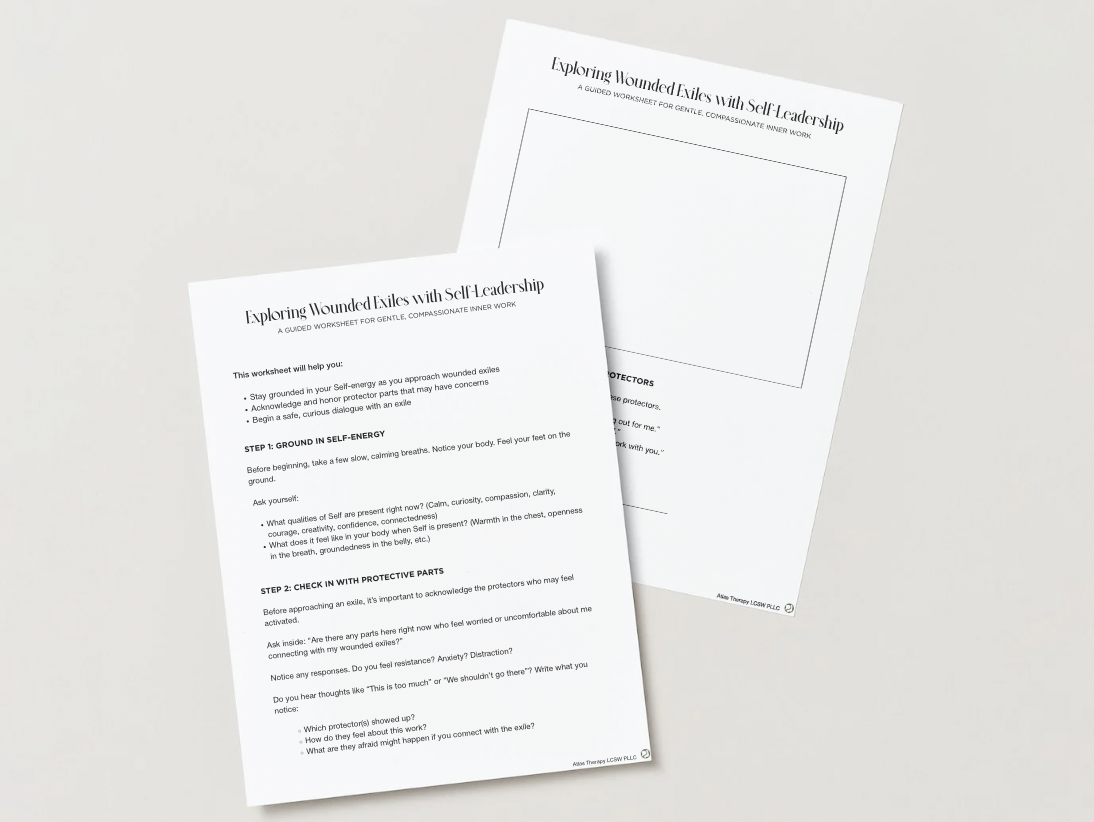
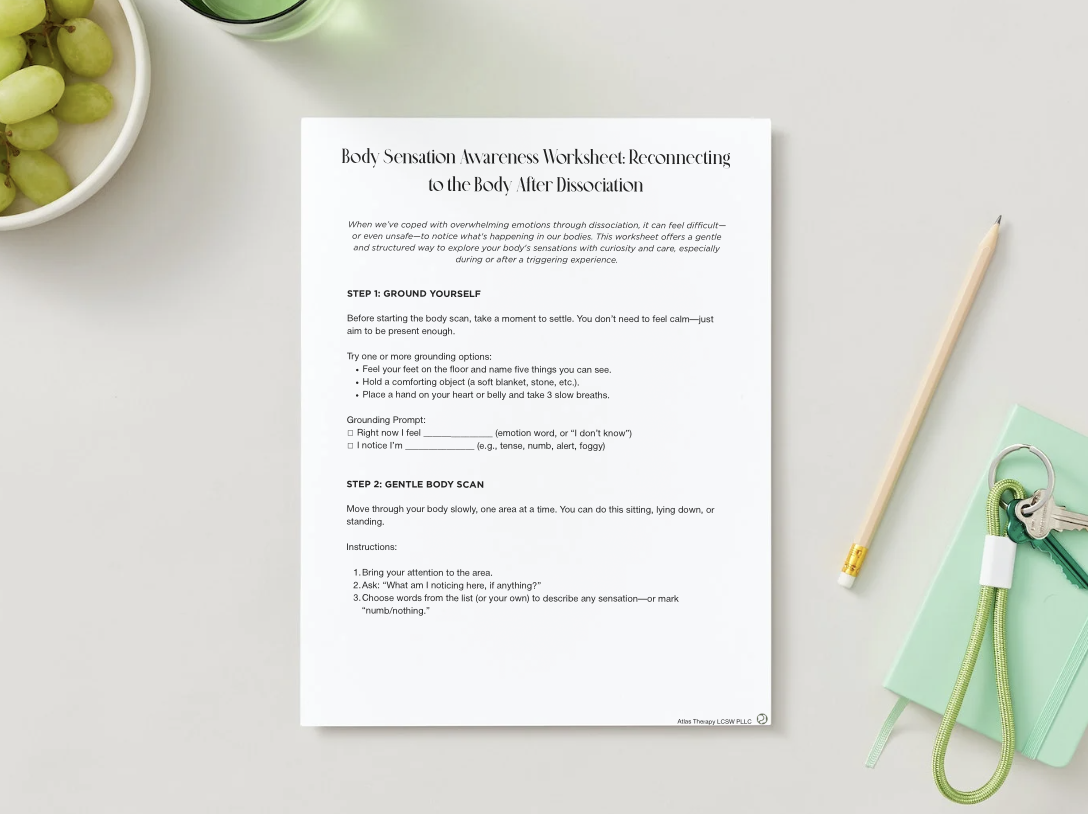
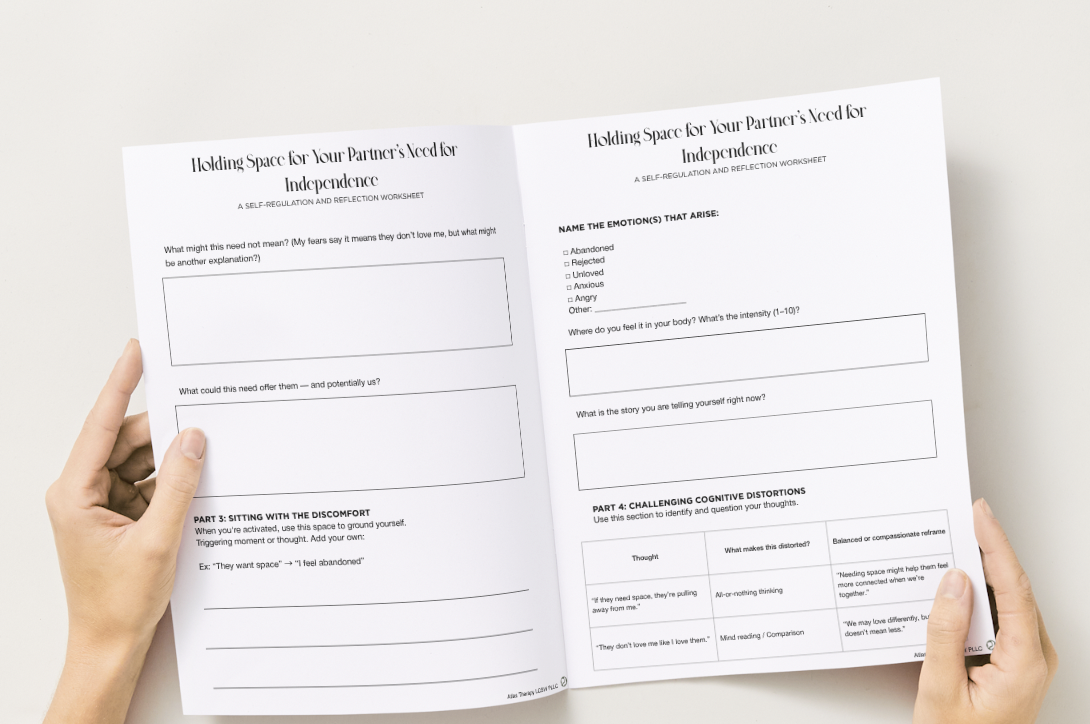


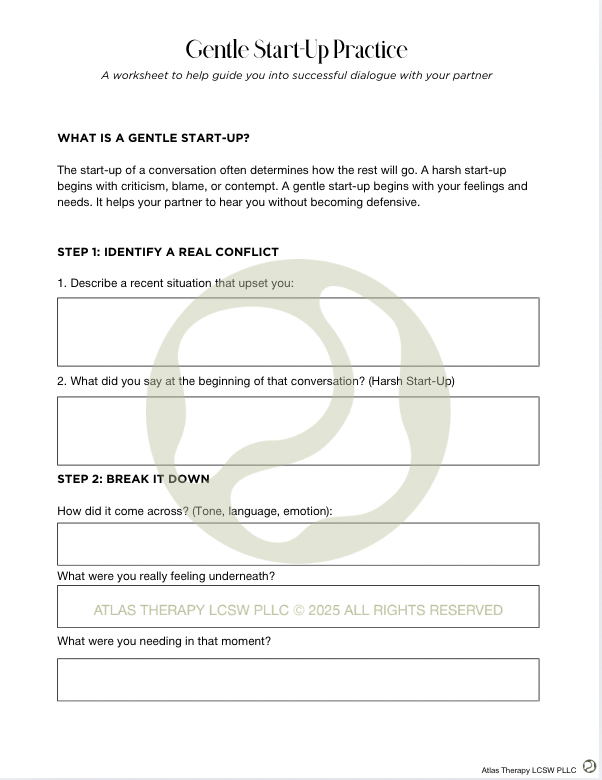






This worksheet helps you and your partner understand the cycle that keeps you disconnected — one of you may pursue (push for connection) while the other withdraws (pulls away for safety). By slowing down and naming what happens inside each of you, you can start to see the cycle as the shared “enemy,” rather than each other.